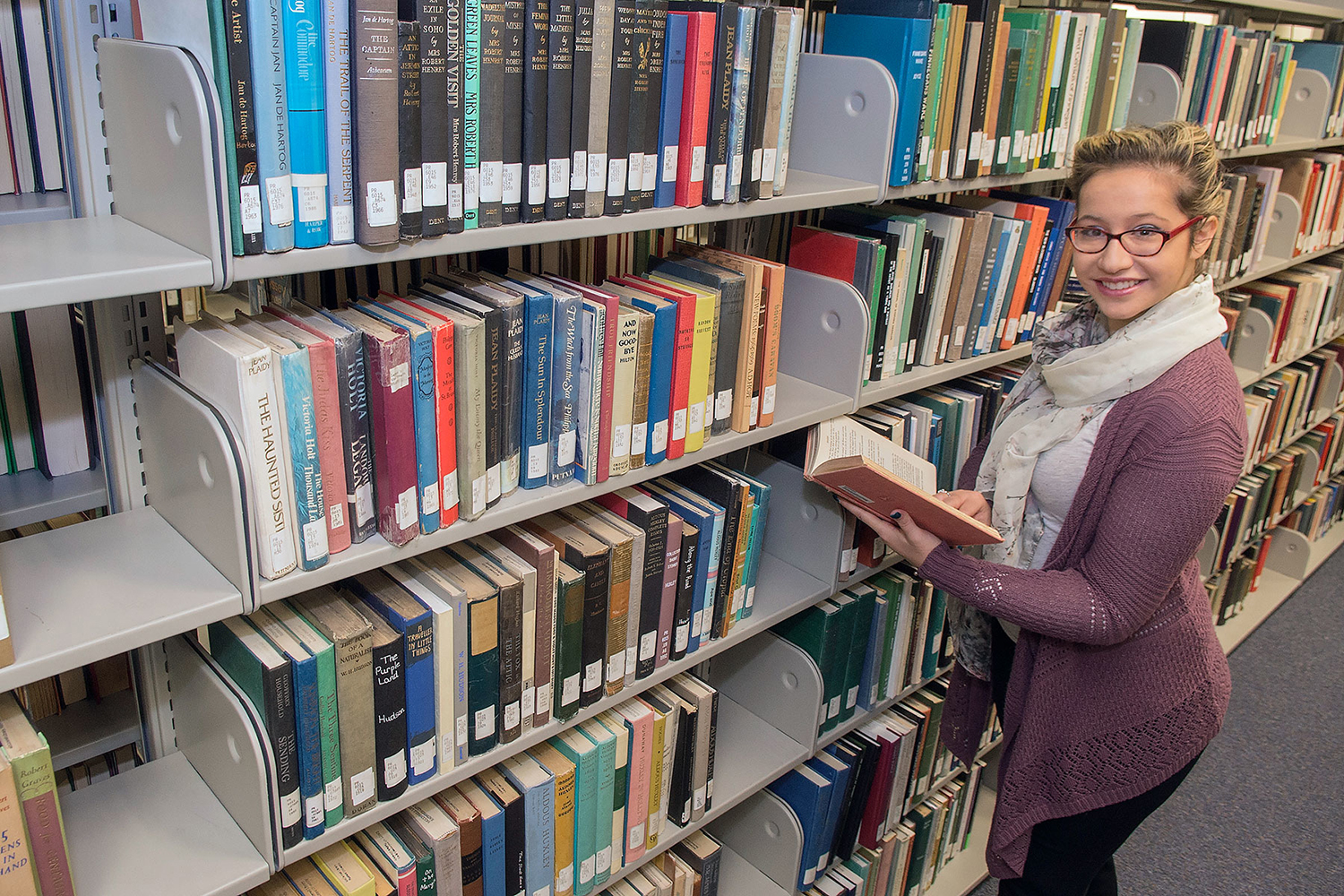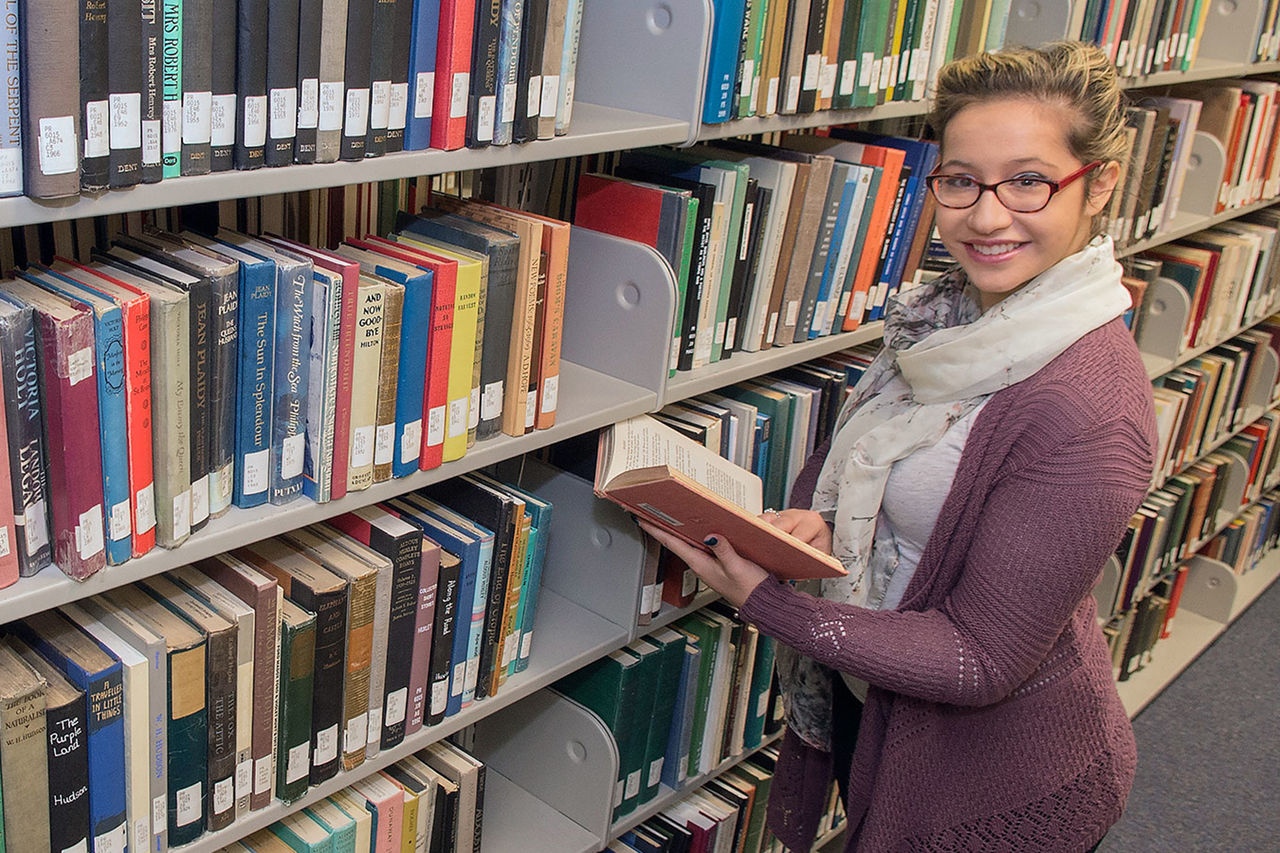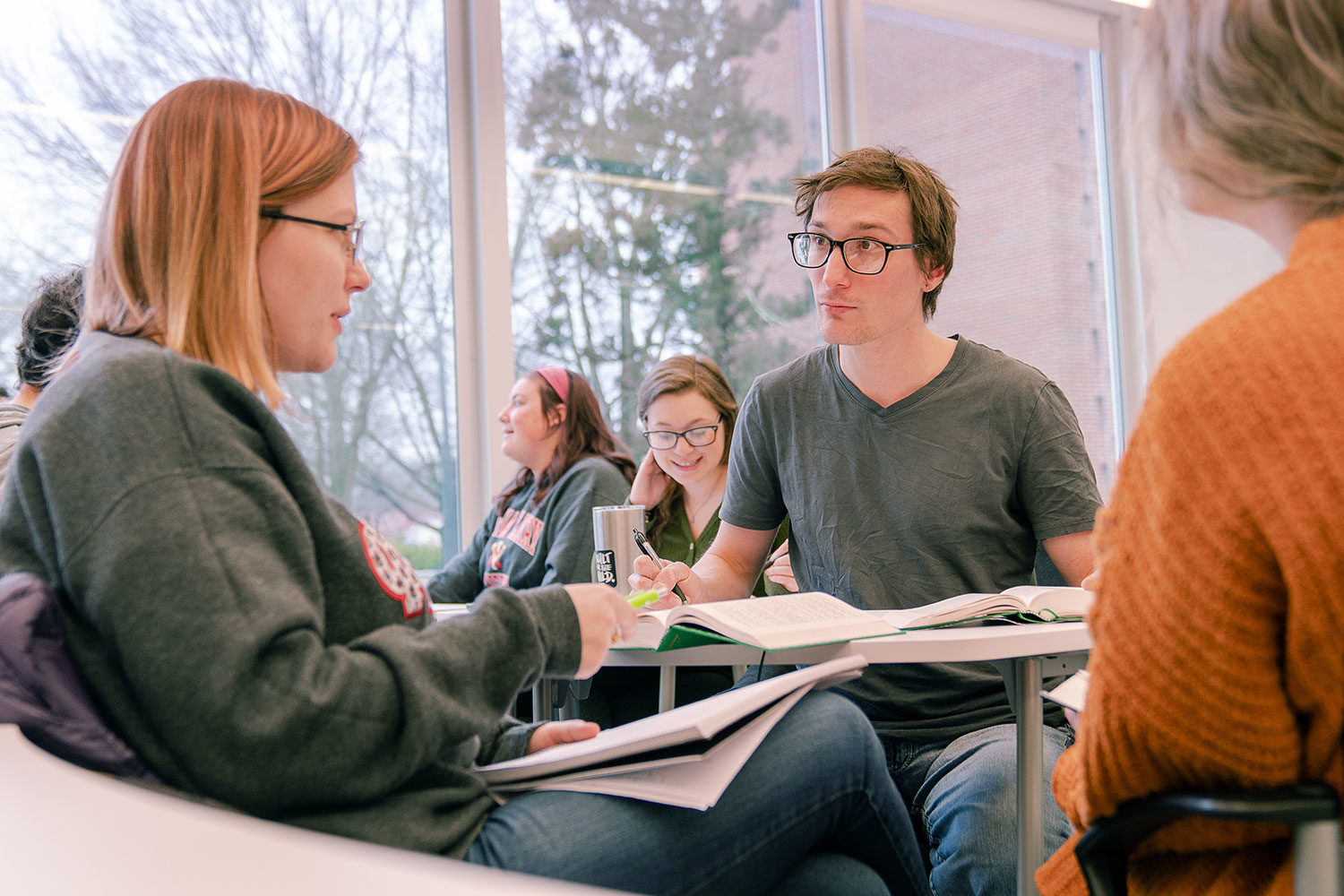Radford University
English
- Degree Type
-
- Master of Arts, Master of Science
- Location
-
- Main Campus in Radford, VA
- Format
-
- In-Person
Overview
As an English graduate student, you will explore the power of language in historical and contemporary contexts, developing strong analytical and rhetorical skills. You’ll conduct independent, innovative research and craft thought-provoking scholarly work, as you gain critical understandings of the artistic, social and cultural significance of literature.

The English Graduate Program
Located in Hemphill Hall, the School of Writing, Language and Literature (SWLL), offers two graduate degrees: a Master of Arts (M.A.) and a Master of Science (M.S.).
The M.A. degree requires completion of graduate coursework, a comprehensive exam, a graduate thesis project and an oral defense, while the M.S. degree requires completion of graduate coursework and a comprehensive exam (but not a thesis project or oral defense). Within the M.S. option, students may also elect an English Education concentration, either with or without licensure.
In addition to these two graduate degrees, the School of Writing, Language and Literature (SWLL) also offers a Professional Writing Graduate Certificate for both graduate students and working professionals.
Please visit the School of Writing, Language and Literature Academic Programs for more information.
Why study English?
As an English graduate student, you’ll have additional opportunity to pursue your scholarly interests, to expand your professional expertise and to develop your teaching experience in a small, inclusive, supportive (and funded!) program with dedicated faculty mentors.
Our experienced and passionate faculty have expertise in a diverse range of topics such as education, film studies, game design, environmental studies, playwriting, disability studies, poetry, Appalachian studies, Shakespeare and much, much more!
Please visit the School of Writing, Language and Literature Our Faculty and Staff for more information about our faculty and their areas of research, teaching and service. And please visit SWLL Student Resources and the Office of Graduate Affairs for more details about graduate funding opportunities at Radford University.
Admissions Requirements
The admission requirements are a combination of standards from the Office of Graduate Affairs and the School of Writing, Language and Literature (SWLL):
- Minimum grade-point average: 2.75
- 15 credits of upper-level coursework in English literature and language or other relevant disciplines, as approved by the Director of the School of Writing, Language and Literature (SWLL).
- 2 letters of reference
- Sample of expository writing
- Applicants who wish to be considered for a graduate teaching assistantship (GTA) position must also submit a supplemental essay about the teaching of writing, uploaded as part of your main Graduate Application.
- Standard resume
- Unofficial transcripts from all college institutions, including any post-baccalaureate work. Admitted students will be required to later submit official transcripts prior to their first term of enrollment.
- Testing
- The Graduate Record of Examination (GRE) test is not required for admission into the English graduate program. However, test results may be required for some international applicants. Visit the International Admissions page for more information.
- Application fee: $50
- Note: Application fee waivers are available in some instances. See the Office of Graduate Affairs for more information.
Deadline: Applications are accepted on a rolling basis. However, those applicants interested in a graduate teaching assistant (GTA) position must apply by March 1. Interviews with GTA applicants will be conducted via Zoom in April.
Careers for English Graduate Students
In addition to attending doctoral programs and law schools across the country, our graduate alumni have gone on to do exceptional work in public schools, nonprofits, public relations, marketing, publishing and user-experience (UX) design. Our faculty are committed to being the best academic / professional mentors possible and to preparing you for future careers. Your success matters to us!
Opportunities for English Graduate Students
The School of Writing, Language and Literature (SWLL) offers many opportunities for English graduate students—including teaching experience, professional development, conference preparation, research and travel support, creative outlets and social events. Consider us your gateway to extracurricular experiences! You’ve found your place here!
For more information related to the School of Writing, Language and Literature—including details about tuition waivers, teaching stipends and other forms of funding—please visit SWLL Student Resources and the Office of Graduate Affairs.
Contact Us
For more information about applying to the English Graduate Program and/or questions about funding, coursework or general inquiries, please contact Sean Keck, Ph.D. (English Graduate Program Director).
For more information about teaching options with the English Graduate Program, please contact Frank Napolitano, Ph.D. (Graduate Teaching Mentoring Program Coordinator).
For more information about the Professional Writing Graduate Certificate, please contact Laura Vernon, Ph.D. (Professional Writing Certificate Program Coordinator).
Related Programs
-
Small, Supportive Cohort 16-20 full-time English graduate students
Small, Supportive Cohort
16-20 full-time English graduate students
-
Competitive Funding Tuition waivers + teaching stipends available
Competitive Funding
Tuition waivers + teaching stipends available
-
Professional Development Support for travel, conferences and research
Professional Development
Support for travel, conferences and research
Learn to Teach Your Way
As first-year GTAs, students work on teams with a faculty mentor and fellow students to design and implement a composition course. As second-year GTFs, students create and teach two sections of their own composition course. Along the way, you’ll develop your confidence, critical thinking, communication, teamwork and problem-solving skills for future careers in a variety of fields. Teach the best minds of tomorrow today!

Ready to Study at Radford?
We want to get to know you better and we are excited that you are ready to take your next step and learn more about us. We are here to help you and look forward to working with you during your college search process.
